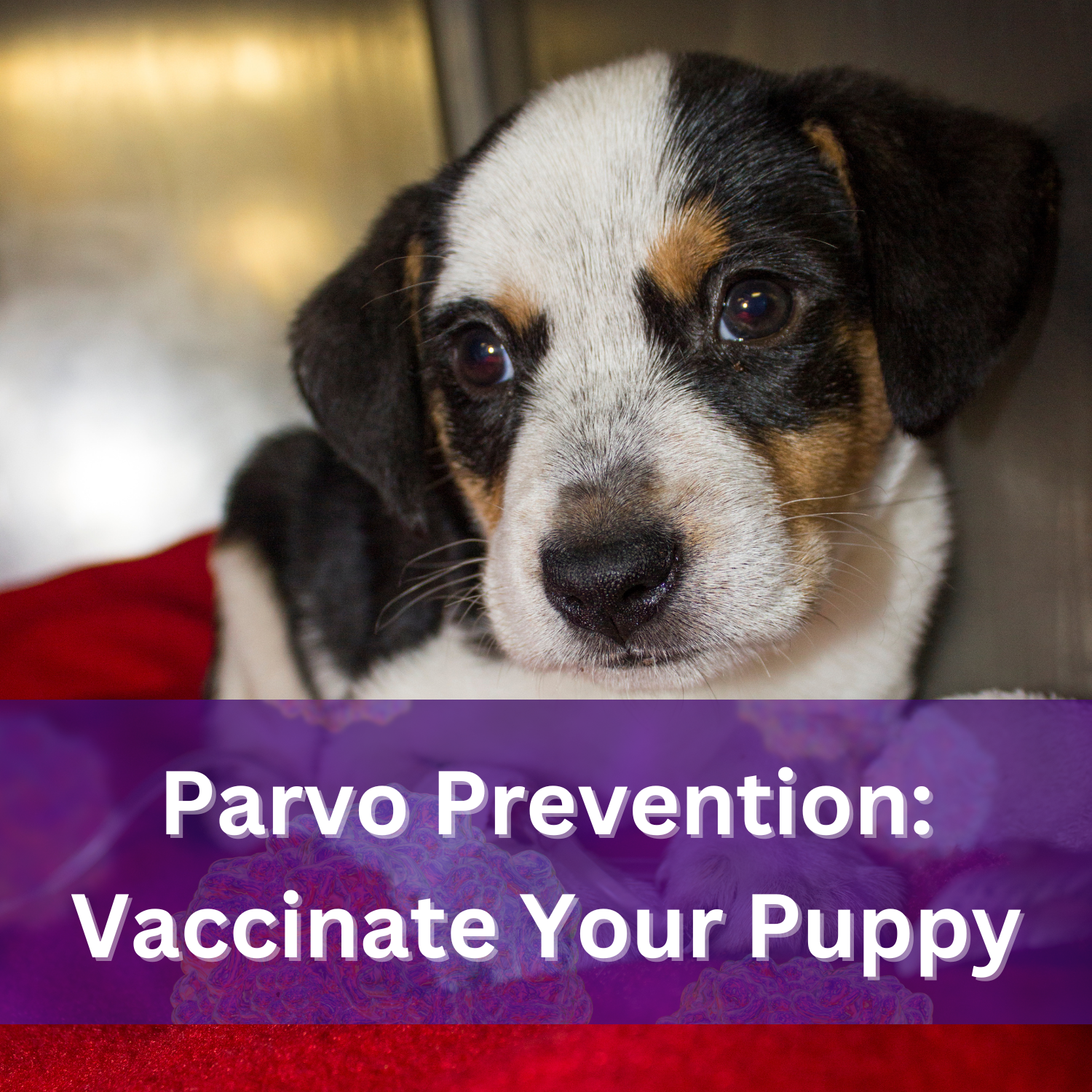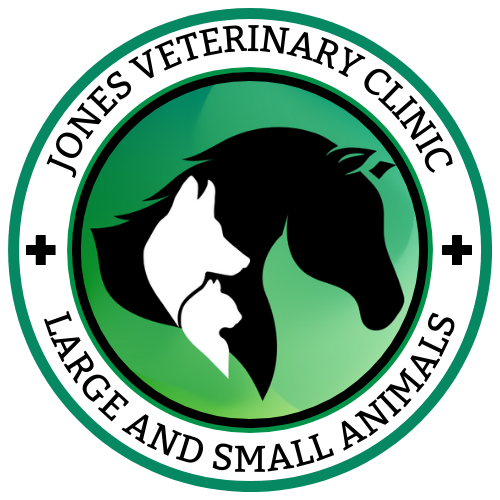Protecting Your Pup: The Importance of Vaccines to Prevent Parvo
When you bring a new puppy home, your top priorities are likely focused on giving them love, comfort, and care. While there’s plenty of joy in those early moments, there’s also a significant responsibility to ensure your puppy is protected against serious diseases—one of the most critical being parvovirus, or parvo. This highly contagious and potentially fatal virus can severely impact your puppy’s health. Vaccination is the most effective safeguard against this dangerous illness, but if a puppy does get sick, we now offer an innovative monoclonal antibody treatment to improve recovery chances. Here at Jones Veterinary Clinic, we’re dedicated to helping you understand parvo, its dangers, and why puppy vaccines are vital.
Understanding Parvovirus (Parvo) in Puppies
Parvo is a highly contagious viral disease that primarily affects young, unvaccinated dogs and puppies. The virus is especially aggressive toward the cells in the digestive system, causing extreme gastrointestinal distress. In severe cases, parvo can damage the heart muscle and the immune system, often leading to fatal consequences if not treated promptly.
How Puppies Contract Parvo
The parvovirus spreads through direct or indirect contact with an infected dog’s feces. Puppies can contract parvo by:
- Sniffing or licking an area where an infected dog has relieved itself
- Coming into contact with contaminated objects, like food bowls, shoes, or people’s hands
- Being around infected dogs or areas contaminated by the virus
Because parvo can survive in the environment for months, it poses a significant risk to unvaccinated puppies, especially in high-traffic areas like parks, sidewalks, or even your backyard if wildlife or other animals may have introduced the virus.
Symptoms and Consequences of Parvo
Once infected, puppies show symptoms within 3 to 10 days. Common signs of parvo include:
- Severe diarrhea (often with a foul smell and sometimes with blood)
- Vomiting
- Lethargy and extreme weakness
- Loss of appetite
- Fever (although sometimes the body temperature may drop)
Parvo attacks rapidly, and without immediate treatment, puppies can succumb to the disease within days. Even with intensive veterinary care, puppies with parvo face an uphill battle, and treatment costs can add up quickly. Unfortunately, due to the virus’s aggressive nature and the risk of dehydration, many puppies don’t survive parvo without early and robust medical intervention.
Why Vaccines Are Essential to Prevent Parvo
The good news is that parvo is highly preventable through a series of vaccines, which stimulate your puppy’s immune system to recognize and fight the virus if they’re ever exposed to it. Vaccinating your puppy not only protects them but also helps create a safer community for other dogs by reducing the spread of this dangerous virus.
The Puppy Vaccination Schedule
The core vaccines for puppies, including the parvovirus vaccine, usually begin when they’re around 6 to 8 weeks old. Your veterinarian at Jones Veterinary Clinic will provide you with a detailed vaccination schedule, but a typical protocol may look like this:
- 6-8 weeks: First vaccine (combination shot covering parvo, distemper, and other diseases)
- 10-12 weeks: Second dose
- 14-16 weeks: Third dose
- One year and annually after that: Booster shots to maintain immunity
The series of vaccines is necessary because young puppies have immune systems that are still developing, and they may need multiple doses to ensure they’re fully protected. This staged approach helps build up their immunity over time, providing robust protection against parvo and other diseases.
Why Early Vaccination is Critical
Puppies are particularly susceptible to parvo due to their immature immune systems. Waiting too long to start their vaccines or missing doses could leave them vulnerable to contracting the disease. In addition to safeguarding your own puppy, vaccinating early helps reduce the risk of outbreaks within your community. Every vaccinated puppy reduces the chances that parvo will spread to others, which is especially crucial in high-traffic dog areas like parks, kennels, and shelters.
Protecting Your Puppy Before They’re Fully Vaccinated
Since parvo can be so devastating, it’s crucial to minimize your puppy’s exposure to high-risk areas until they’ve completed their vaccination series. Here are some ways to keep your puppy safe before they’re fully vaccinated:
- Avoid dog parks, public parks, and pet stores where many dogs (and their germs) congregate.
- Limit interactions with unknown dogs. Wait to introduce your puppy to friends’ or neighbors’ dogs until those dogs are up-to-date on vaccines.
- Keep your home and yard clean. Disinfect areas where other animals have been, as parvo can survive on surfaces for months.
- Practice good hygiene. Wash your hands thoroughly after interacting with unknown dogs or visiting areas where parvo may be present.
These preventive measures, combined with vaccinations, provide the best line of defense for your puppy.
Monoclonal Antibody Treatment: A New Option If Parvo Strikes
If your puppy contracts parvo despite vaccination or other precautions, Jones Veterinary Clinic now offers an advanced treatment option: monoclonal antibody therapy. This innovative treatment has been developed specifically to combat parvovirus, offering hope and faster recovery for infected puppies.
Monoclonal antibodies are lab-engineered proteins that target and neutralize specific viruses, including parvovirus. Unlike traditional supportive care, which manages symptoms, monoclonal antibodies directly attack the virus, helping your puppy’s immune system to overcome the illness more effectively. Benefits include:
- Targeted Action Against Parvo: The antibodies bind to and neutralize the virus, effectively reducing its spread within the body.
- Faster Recovery: By reducing the viral load, monoclonal antibody treatment allows puppies to overcome symptoms faster than with supportive care alone.
- Reduced Risk of Severe Complications: This treatment decreases mortality rates in puppies with parvo, even those with severe symptoms.
Though prevention through vaccination is the best route, monoclonal antibody therapy provides a critical safety net for puppies that do contract parvo.
Why Choose Jones Veterinary Clinic for Your Puppy’s Care
At Jones Veterinary Clinic, we’re dedicated to providing the highest level of veterinary care to the communities of Jones, Midwest City, Choctaw, Harrah, Edmond, and Spencer. Our team is here to guide you through every step of your puppy’s health journey, from initial vaccines to cutting-edge treatments like monoclonal antibody therapy if needed. Our goal is to help you keep your puppy healthy, happy, and protected.
In Summary
The joy of raising a puppy comes with the responsibility of protecting them from life-threatening diseases like parvo. Vaccines are safe, effective, and critical in preventing this potentially fatal illness. By adhering to a vaccination schedule and following preventive measures, you’re giving your puppy the healthiest start possible. And with new advancements like monoclonal antibody treatment, you can rest assured that should parvo strike, we’re here with the best tools and care available.
To schedule your puppy’s vaccinations or learn more about our services, reach out to us at Jones Veterinary Clinic. Together, we can ensure your puppy grows up healthy, happy, and safe.


